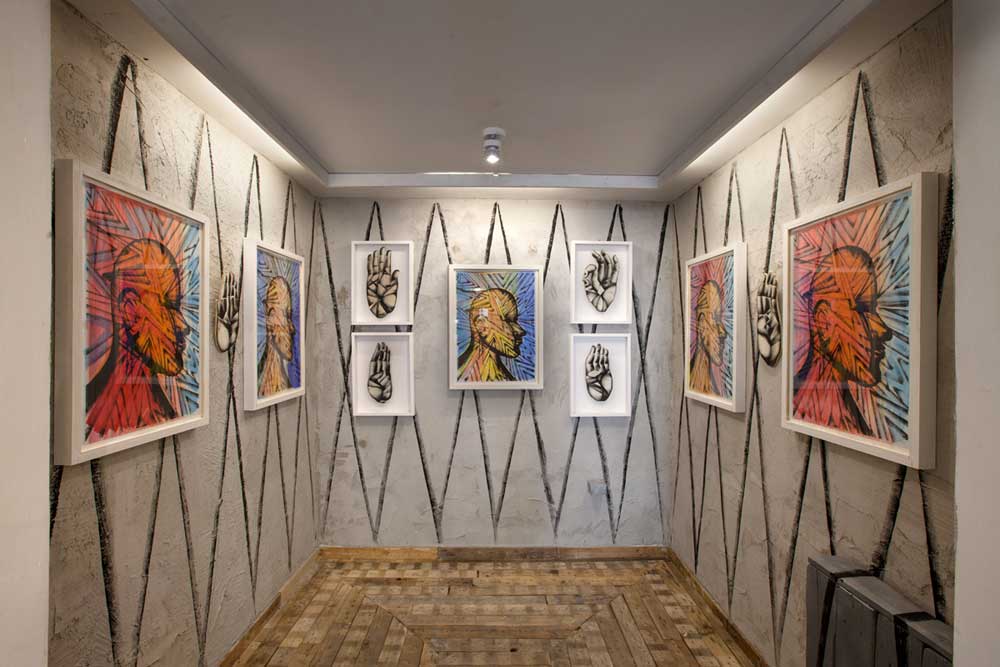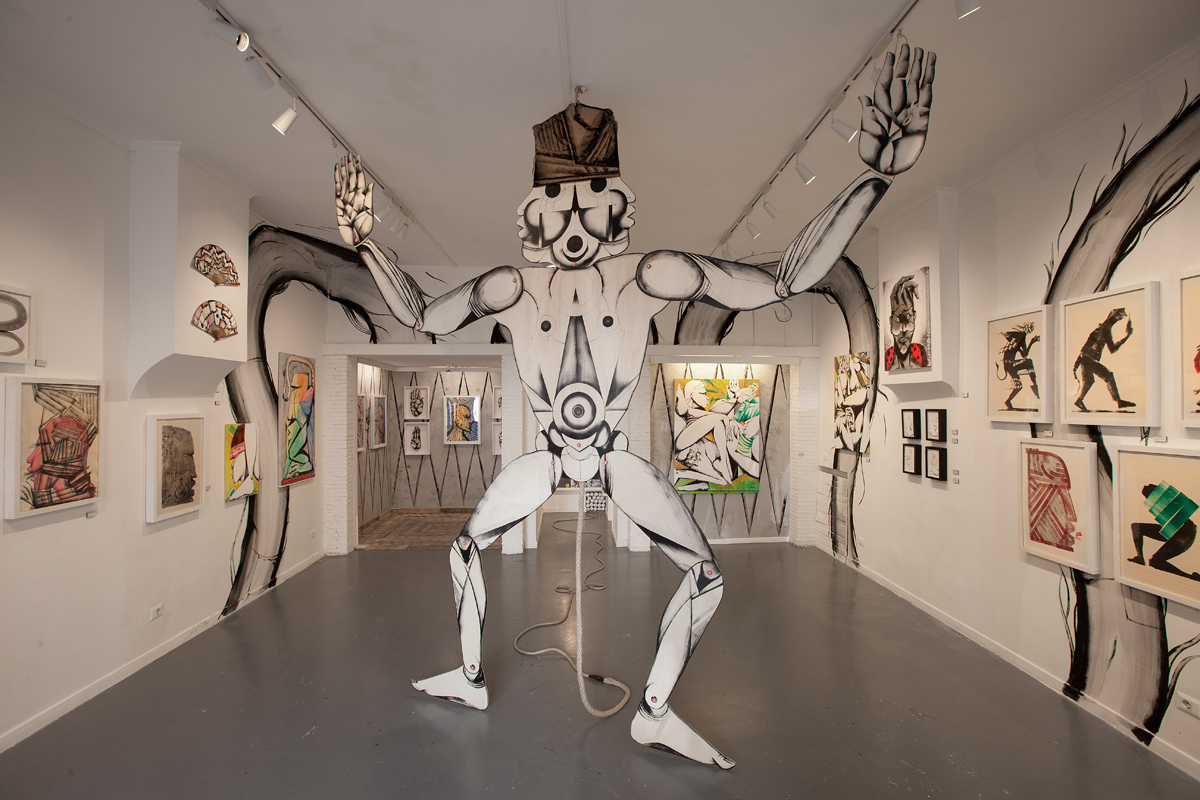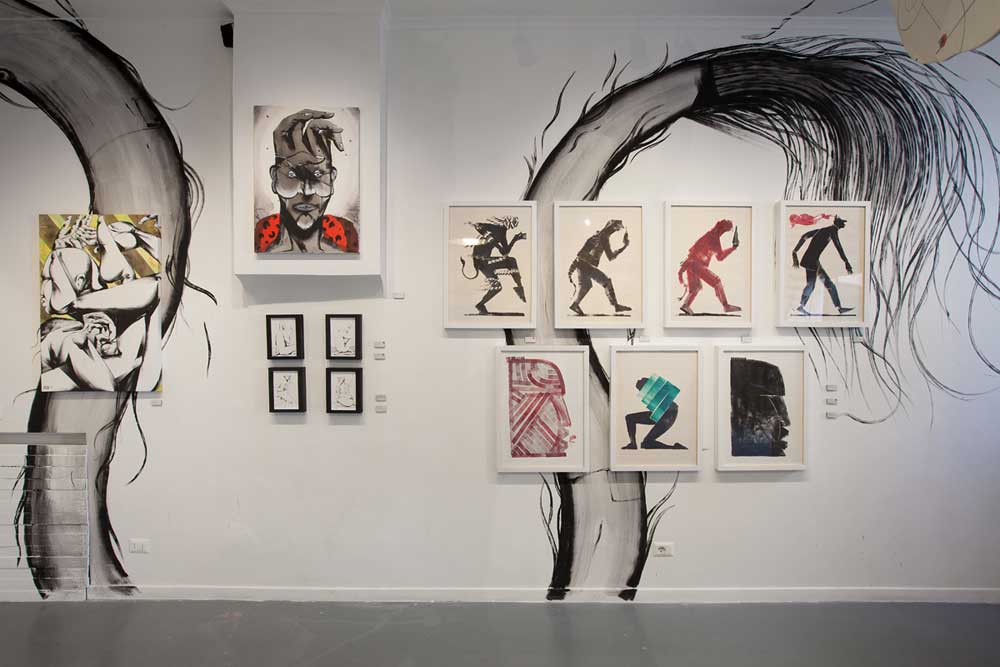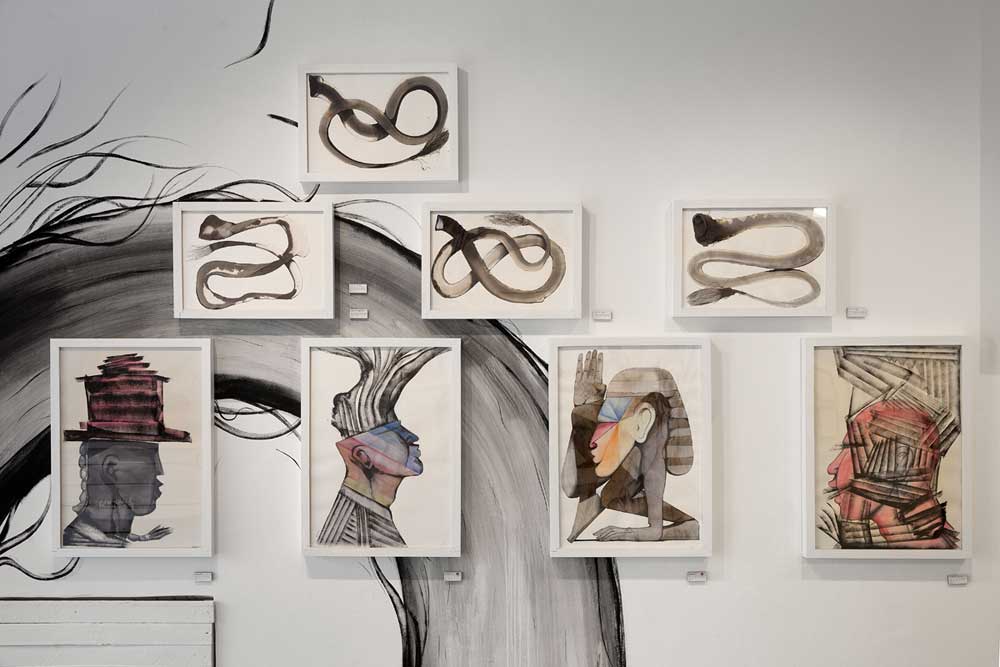Run – The man with the tale
INTERVIEW BY GALLERIA VARSI

I would like to start this interview by asking where you started your murals and with what style?
A: I started in abandoned or occupied places, with a completely different technique from the one usually done with spray cans. I felt that spray cans were a strong limit to my expression, whereas paint was more traditional and always more available.

Why roller and brush?
A: I decided to break free from the conventions of that period, taking a more intimate and personal pictorial journey. So I brought my drawings on the street, sometimes fearing the impact on people, but always allowing myself to express as freely as I wanted and without any impositions or academic rulings, also because I was self-taught. My work is so deeply primitive that sometimes I wonder who would have done these things if it hadn’t been for me.

Some of your subjects, which you say are free from conventions, communicate a deep spirituality. How would you classify them?
A: I started drawing following a mainstream, but now I express myself only through my personal language.

How does it feel to be an artist in this historical moment?
A: In this period there are no jobs available, and working with art has almost a political meaning. It is a moment of deep crisis and I feel that to be able to live with this kind of work, to travel and to be free to be with my family, is a fairly political statement. Until a few years ago I never referred to myself as an artist, but always said I was an illustrator. It was not a lie and I was embarrassed to say I was an artist; it felt sort of presumptuous.
Painting on wall makes you work under everybody’s eyes. Did something change in your way of working since you moved to London?
A: Everyone can see you while you work on a wall and your art stays on that wall until the building is standing. In London I started drawing in a different way, especially because I increased my production on walls. It happened when I started thinking that I come from a village where everybody knows me, while London is a city where I was invisible: I was nobody and nobody recognized me, as in all large cities.

An anecdote about working in the streets?
A: In a street two policemen stop while I am painting a wall in a street and ask, “Are you doing graffiti?” I answer, “No, it’s Street Art”, so they walk way saying, “Oh, ok.”
What parts of the world have seen through your work?
A: Never enough. In 2009 a mural art book came out that was bought by two Chinese architects in Rome. When they returned to Shenzhen they decided to set up an exhibition of Street artists in a museum that had just been built. On that occasion I met many artists from Boston, South Africa, Northern Ireland, Greece and many other parts of the world. It was a great exchange. Painting during one’s travels gives you the feeling of being in the heart of a situation; you do not feel like a tourist. I have always explored the world while painting and this has helped me never to feel like a foreigner. You do not understand places if you live them like a tourist; I like to live with the same daily habits of the people in the town where I stay. In 2011 I returned to China and in the past years I have toured Europe, always to paint.

When did you decide to self-produce your trips?
A: In 2013 I decided to self-produce a trip to Africa, where I visited Gambia and Senegal. I set up a route and contacted local people to give me places where to draw; I lived helped by people who let me paint on houses in villages and cities. I was always greeted wonderfully. One day, while painting in a village, a woman with a baby in her arms came to thank me for having painted on his house, but then she added: “This was great, but next time bring us a sack of rice because my children are hungry.”

What emotions do you feel when you paint a wall?
A: A wall is like a living thing, it can give you the feeling it will fall on you if you do not do the right thing. A wall is something that will not go away and that for a certain period of time will change the landscape, becoming part of people’s daily lives; therefore it is an important. Every painting made on a wall requires you maintain the awareness of all the drawings done in a lifetime.
Why did you decide only recently to use your real name?
A: Because RUN is not me.
